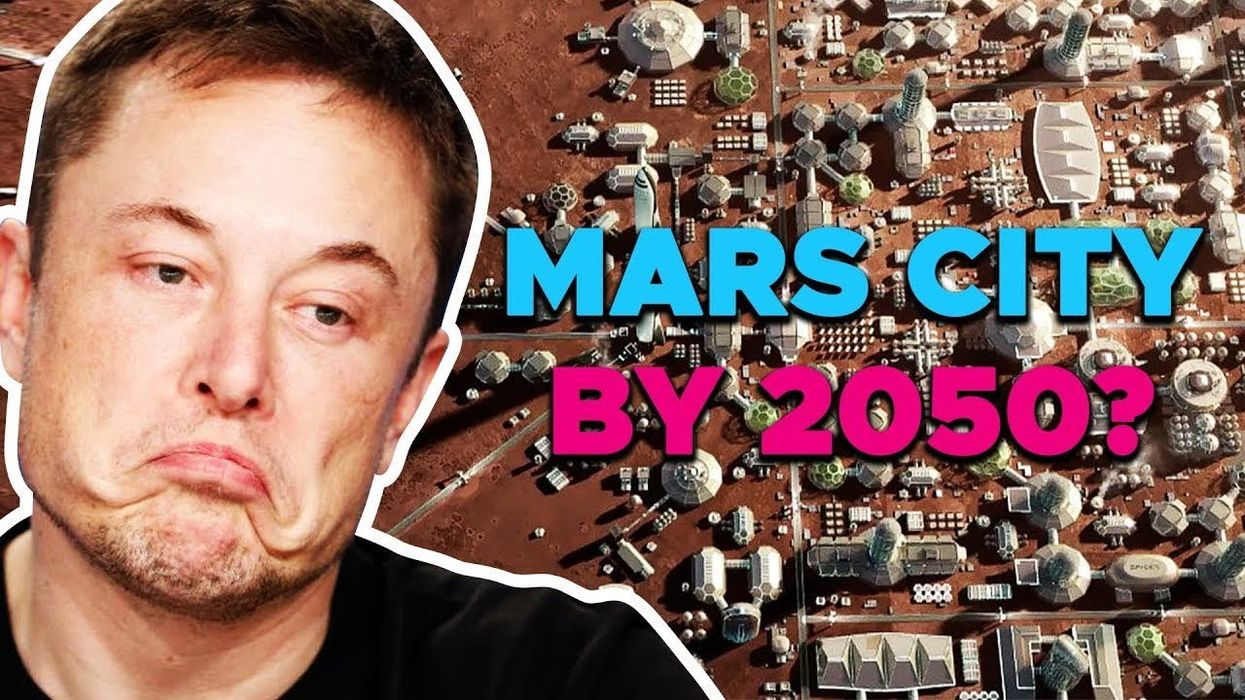Harriet Brewis
Mar 15, 2023
Can Elon Musk Build Mars City By 2050?
content.jwplatform.com
Elon Musk seems to believe his SpaceX company holds the key to humanity’s survival.
It’s a big claim, sure, but this is Elon Musk we’re talking about.
The world’s richest man was speaking about the upcoming orbital launch of his $3 billion Starship rocket when he offered some sobering reflections on the future.
The rocket, which is the largest ever built, is set to lift off from Boca Chica, Texas, within the next month or so, provided it receives its license from the Federal Aviation Administration.
However, Musk admitted he’s not even convinced it will reach orbit on its first attempt, predicting it’s got “roughly a 50 per cent chance” of doing so.
Sign up for our free Indy100 weekly newsletter
Speaking at a Morgan Stanley conference last week, he said jovially: “I'm not saying it'll get to orbit, but I'm guaranteeing excitement, so… won't be boring.”
Still, he said more optimistically, his team is building a “whole series of starships in South Texas,” adding: “So I think we've got hopefully about an 80 per cent chance of reaching orbit this year, and it’ll probably take us a couple more years to achieve full and rapid reusability.”
This, he said, “I can’t emphasize enough” will be “the profound breakthrough that is needed to extend life beyond Earth.”
He explained that this is because having reusable rockets “lowers the cost of access to space by orders of magnitude in the same way that if, let's say there were no airplanes that were reusable, how expensive would air flight be?
“It would be insane,” he continued: “ You’d have to fly a new airplane every time you flew somewhere and you’d have to tow a small airplane behind you for the return flight.”

So, he went on, if his starships do reach their full potential, “they could make life multi-planetary,” and make “life on Mars real” which, he pointed out: “Is a really big deal.”
Going further, he said that if humans do become “multi-planetary” this could ultimately lead to “multi-stellar space flight” – in other words, we’d soon be travelling to other star systems.
He concluded: “I think we may discover that there are many long-dead one-planet civilisations. We don't want to be one of those.”
And on that cheery note, his interview was drawn to an abrupt close.
Have your say in our news democracy. Click the upvote icon at the top of the page to help raise this article through the indy100 rankings.
Top 100
The Conversation (0)














